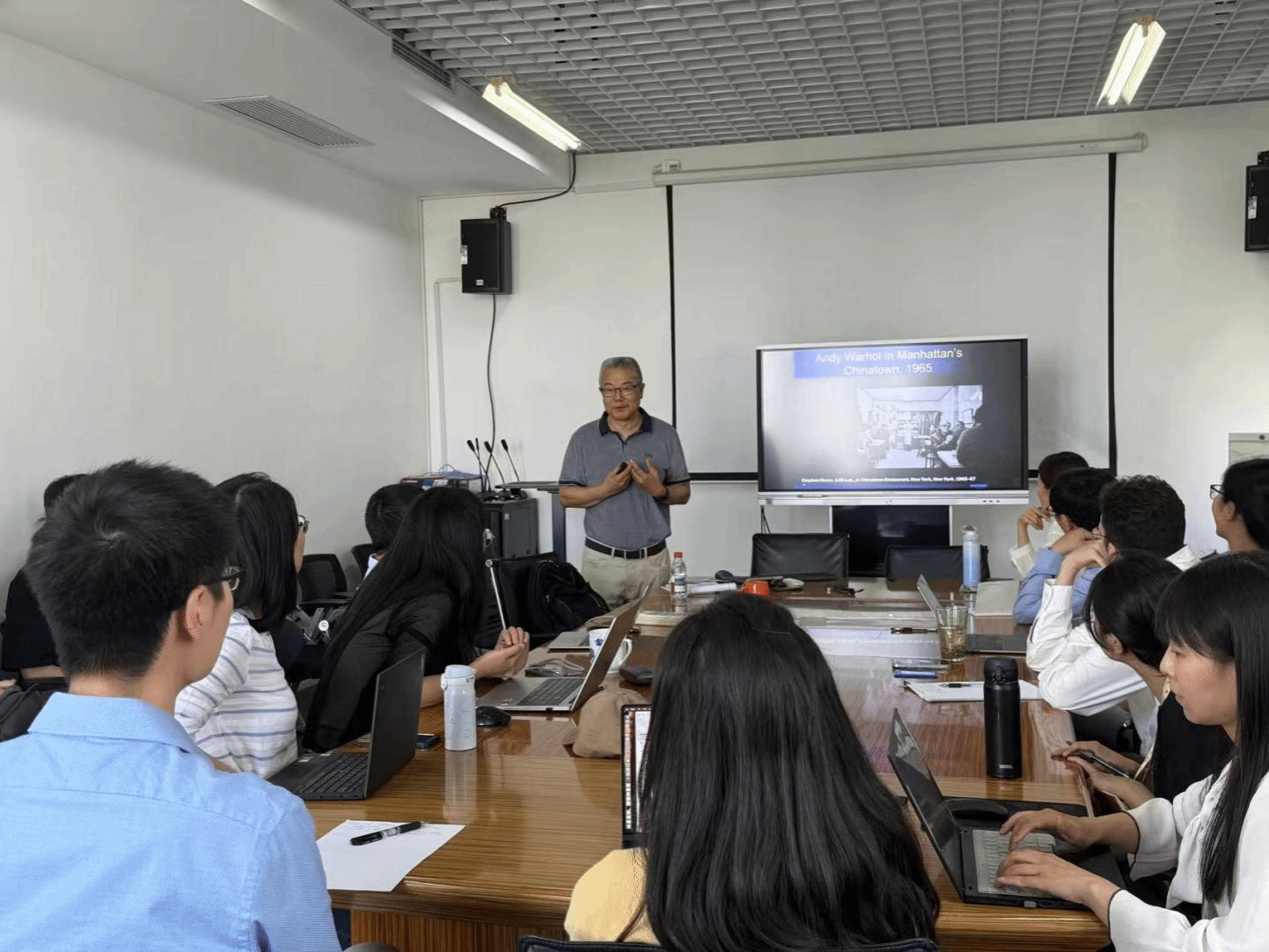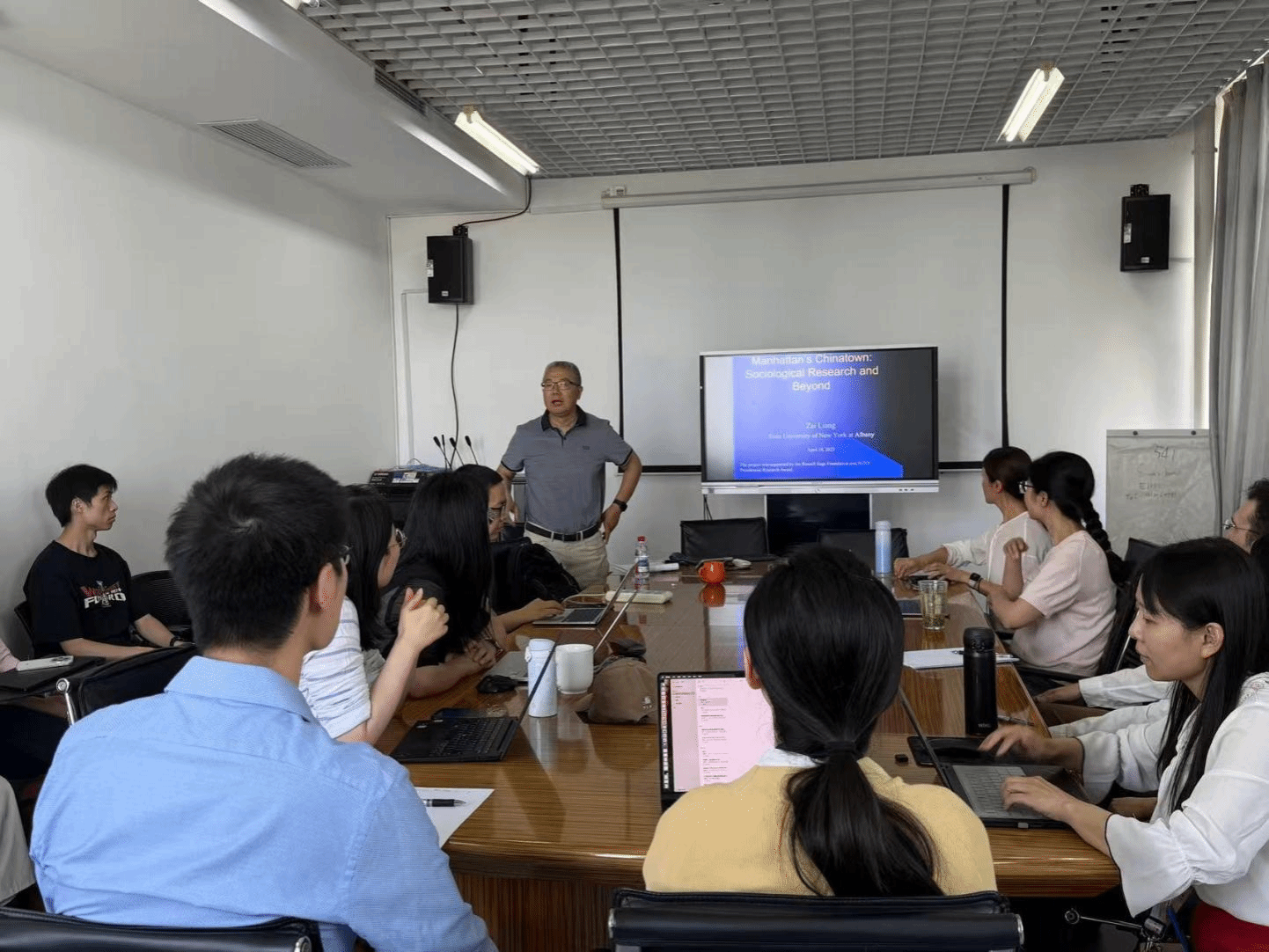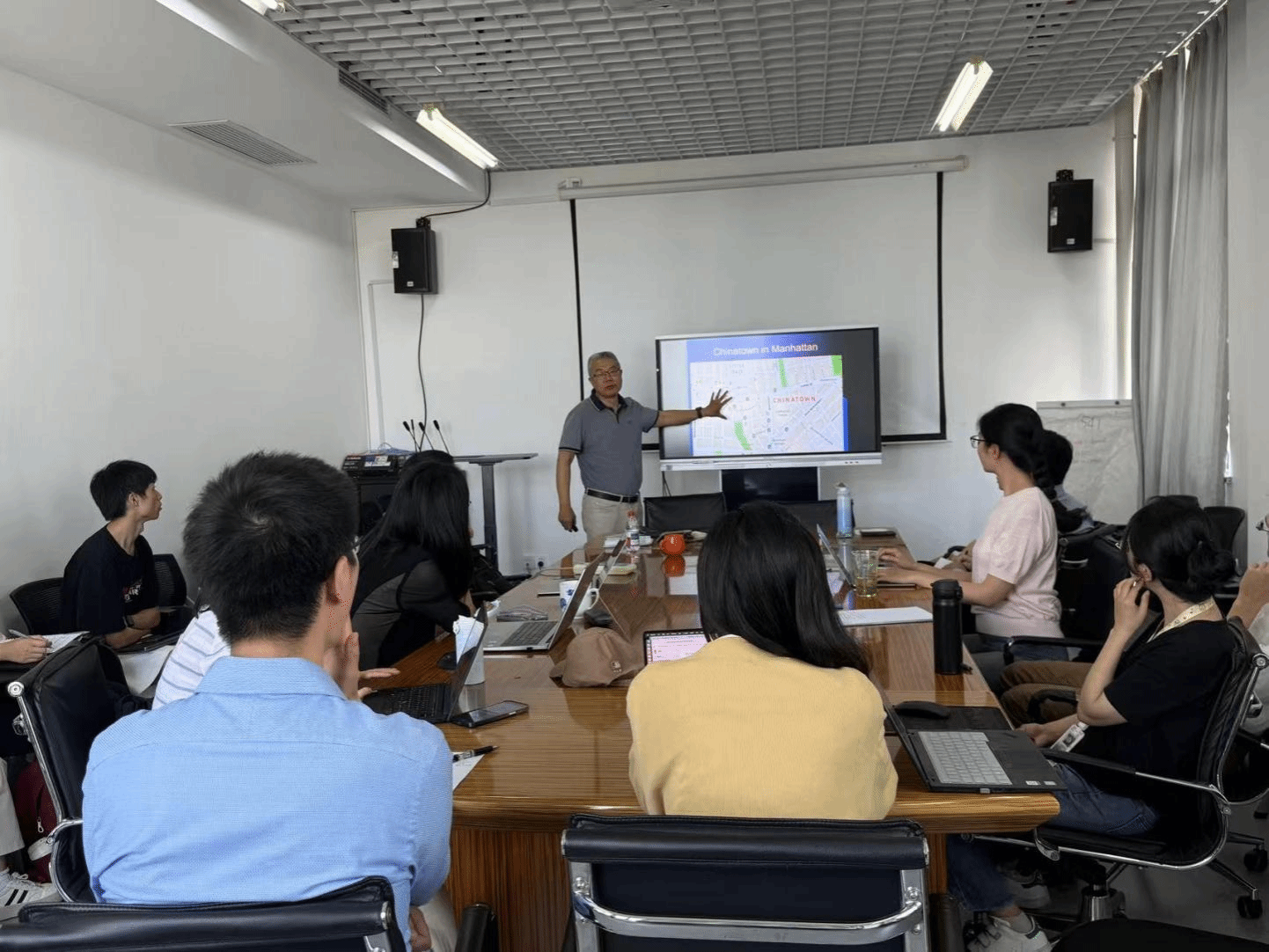On the afternoon of Thursday, May 29, ADRI invited Professor Zai Liang from the Department of Sociology at the University at Albany, State University of New York (SUNY), to deliver a lecture titled “Manhattan’s Chinatown: Sociological Research and Beyond.”
Professor Zai Liang is Distinguished Professor and Chair of Sociology at State University of New York at Albany. He previously served as a visiting scholar at the Russell Sage Foundation in New York City. Professor Liang is an elected fellow of the American Sociological Research Association and the recipient of the 2020 Louis Wirth Best Paper Award from the American Sociological Association. His research has been supported by multiple foundations, including the National Science Foundation, the National Institutes of Health, the Ford Foundation, and the Spencer Foundation. From 2004 to 2022, he served as the director and co-director of the "China Urban Research Network" based in Albany. His main areas of research include immigration and migration studies, urbanization, urban sociology, and Chinese studies.
The lecture was chaired by Associate Professor Li Zhen, who began by introducing Professor Liang’s academic career and primary research areas. She also expressed her gratitude for Professor Liang’s visit to ADRI to share his research.

Drawing on over two decades of in-depth research in Manhattan’s Chinatown, the lecture explored the recent history of Chinese immigrants in the United States and the fundamental transformations in their spatial settlement patterns. These changes have led many low-skilled Chinese immigrants to relocate from New York City's Chinatown to new immigrant destinations, a shift driven by numerous complex and significant factors.

Professor Liang not only highlighted the sociological value of studying Manhattan’s Chinatown but also examined the broader social and cultural impacts of Chinatown and Chinese culture. He underscored Chinatown’s unique role within the context of multicultural integration. Using a mixed-methods approach across Chinatown and six U.S. states, Professor Liang revealed a trend of low-skilled Chinese immigrants moving from traditional Chinatowns to non-gateway cities and rural areas—locations often characterized by lower unemployment and crime rates. Moreover, contrary to conventional theories, employment opportunities in Chinese restaurants are more common in areas with higher proportions of non-Hispanic white residents, and wages tend to be higher the farther one moves from New York. These findings challenge traditional models of immigrant employment and economic theory, offering fresh perspectives on immigrant socioeconomic mobility.

In conclusion, Professor Liang emphasized the need for future research to further investigate changes in immigrant employment and settlement patterns across different social contexts. He called for more structurally balanced interviews and larger-scale quantitative analyses, which are crucial for deepening academic understanding of the logic underlying immigration sociology.